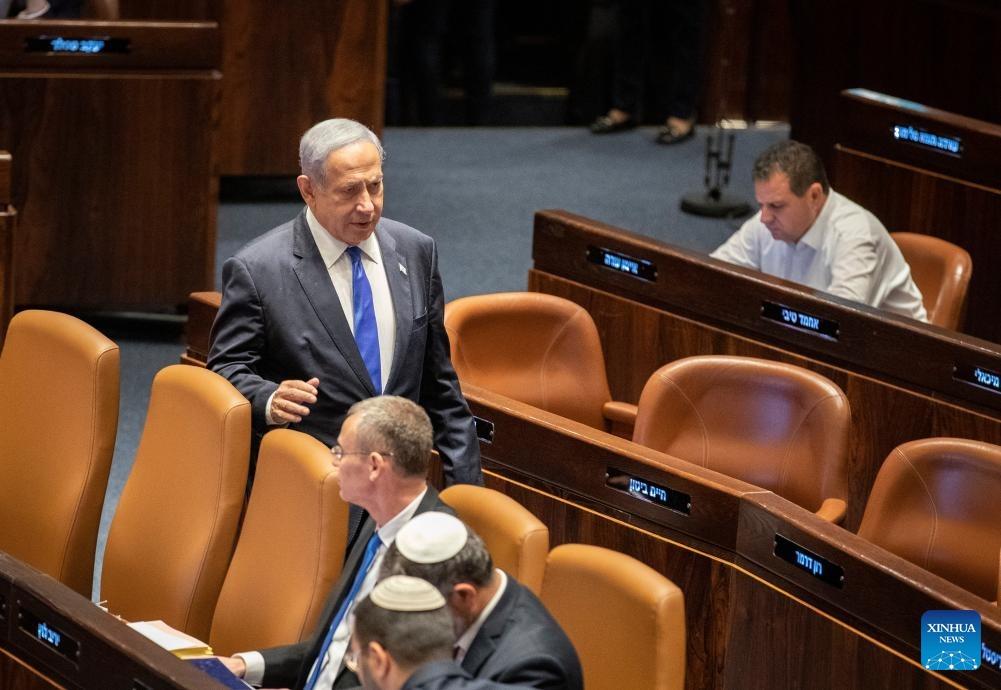 Israeli Prime Minister Benjamin Netanyahu (first left) arrives for a vote at the Israeli parliament in Jerusalem, on July 24, 2023. (PHOTO / XINHUA)
Israeli Prime Minister Benjamin Netanyahu (first left) arrives for a vote at the Israeli parliament in Jerusalem, on July 24, 2023. (PHOTO / XINHUA)
JERUSALEM - Israel's Supreme Court said on Sunday that an expanded panel would hear appeals against a recently-passed law, which makes it harder to declare Prime Minister Benjamin Netanyahu unfit for office, in September.
In a decision published by the country's top court, the justices instructed the state to respond to arguments and explain why the new law should not come into effect until after the next elections, to avoid it from being perceived as a tailor-made law designed to benefit Netanyahu.
The law canceled the possibility of removing Netanyahu due to his conflict of interests over his ongoing corruption trial. Moreover, only Netanyahu's government or the parliament, in which Netanyahu's coalition also has a majority, now has the authority to remove an incumbent prime minister and only on medical grounds
The court also set an expanded panel of 11 justices to hold the follow-up hearing scheduled for September 28, after the court held a first hearing on Thursday.
Netanyahu's far-right coalition passed the law in March, changing the conditions under which a prime minister in Israel could be declared unfit for office.
READ MORE: Israel PM defends judice reform, air force chief warns of threat
The law canceled the possibility of removing Netanyahu due to his conflict of interests over his ongoing corruption trial. Moreover, only Netanyahu's government or the parliament, in which Netanyahu's coalition also has a majority, now has the authority to remove an incumbent prime minister and only on medical grounds.
The petitions against the law came as Netanyahu's coalition was trying to pass a controversial plan to reshape the Israeli legal system and undermine the power of the Supreme Court, which sparked mass demonstrations across the country.
READ MORE: Top Israeli court weighs in on Netanyahu's judicial overhaul
Netanyahu was quoted as saying on Sunday that he would work to change the committee that selects judges, amid a wave of protests over planned legislation which could see the highest court stripped of many of its powers.
Asked about the next phase of legislation on the judiciary, Netanyahu said "it would probably be about the composition of the committee that elects judges". He told Bloomberg: "That's basically what's left."
With Reuters input


